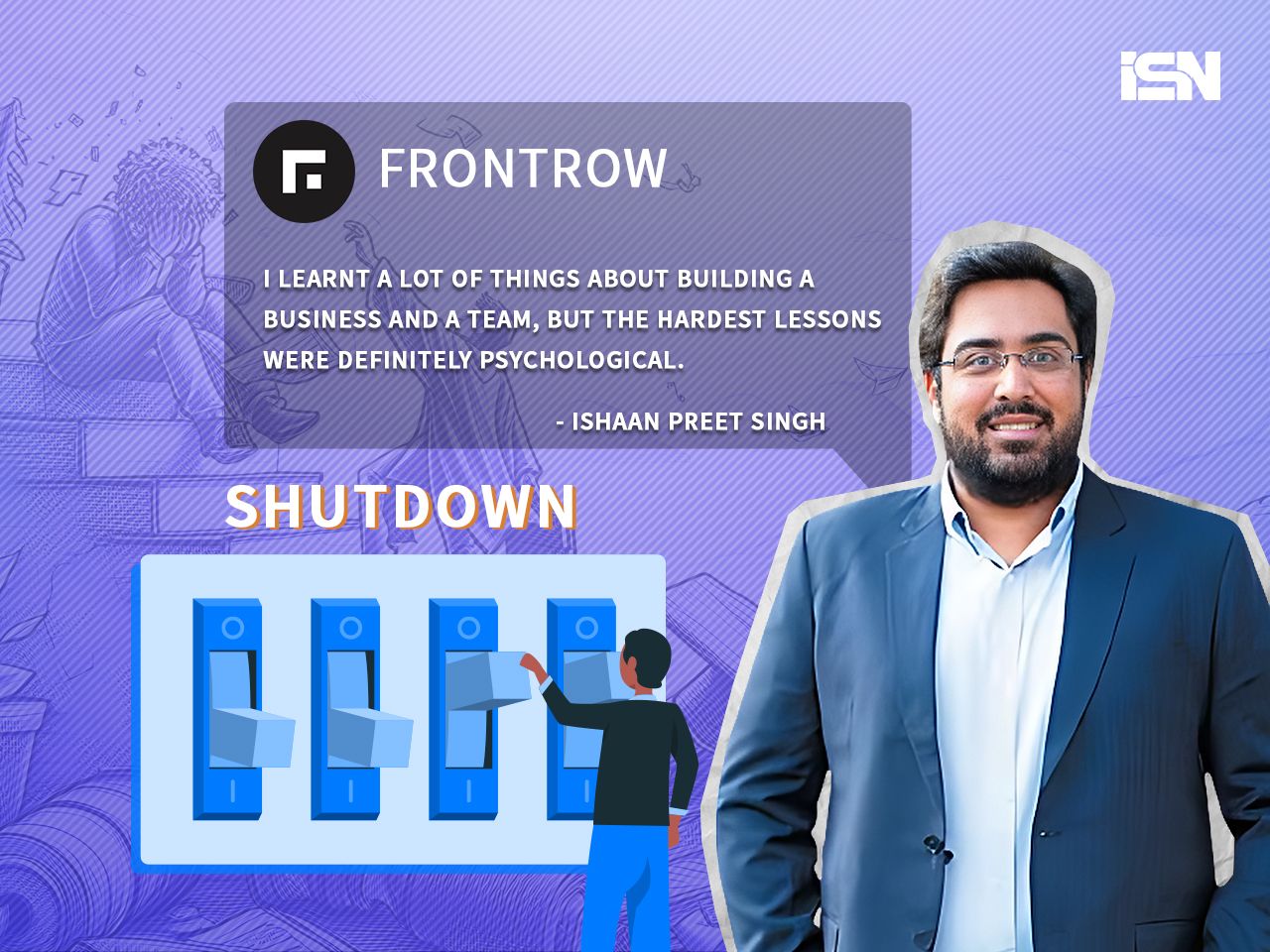In the ever-evolving landscape of edtech, one startup’s journey stands out as a reflection of the challenges and opportunities that define this dynamic sector.
FrontRow, an ambitious venture that sought to revolutionize extracurricular learning, recently made the difficult decision to shut down operations. This move was driven by the formidable challenges it faced in scaling its business and navigating the fiercely competitive market.
FrontRow’s vision and early success
FrontRow was founded by a trio of visionaries: Ishaan Preet Singh, Mikhil Raj, and Shubhadit Sharma. Their mission was nothing short of groundbreaking – to create a platform where individuals could learn from their favourite celebrities in sports, arts, and entertainment.
Backed by prominent investors, including Lightspeed India Partners and actor Deepika Padukone’s family office, the startup gained early traction and saw over 100,000 downloads on the Google Play Store.
With this newfound insight, the founders ventured into the world of hobby learning. They wanted to create a platform, FrontRow, that offered top-notch 101 courses taught by experts and celebrities.
Singh, one of the co-founders, brought valuable experience from his time at Lightspeed India Partners, contributing to the team’s insights and expertise. In an interview, Singh emphasized FrontRow’s vision, stating, “We want to become the daily learning destination for 10 million people in India.” Their approach aimed to provide a comprehensive learning experience, going beyond pre-recorded lessons to include practice sessions, Q&A sessions, competitions, and a vibrant community of learners.
Scaling difficulties and market realities
While FrontRow’s initial success was promising, it soon encountered formidable hurdles when it came to scaling the business.
The edtech sector in India is a battleground, with numerous players vying for market dominance. According to a report by RedSeer Consulting, the Indian online education market was valued at $2.8 billion in 2020, projected to soar to $10.4 billion by 2025. After meticulous planning and numerous pilots, FrontRow was launched in November 2020.
The launch exceeded expectations with enthusiastic users, inspiring stories, and a flurry of activities. The team was riding high on the initial success, expanding the user base, attracting investment, and even receiving acquisition offers. This intense competition made it challenging for FrontRow to stand out and secure significant market share.
User acquisition and retention posed additional challenges
FrontRow’s target audience, primarily interested in sports, arts, and entertainment, might have had more limited growth potential compared to broader educational platforms.
Over the next several months, FrontRow achieved a substantial annualized revenue of $1 million. However, the team encountered a challenge. Despite their marketing efforts, the growth plateaued, and course completion rates remained below expectations.
This prompted a shift towards enhancing the community features to increase user engagement. Acquiring and retaining users is critical for any edtech startup, but it can also be a costly endeavor. The cost per acquisition (CPA) and cost per activation (CPA) metrics are vital indicators of a startup’s ability to acquire and engage users effectively.
Understanding the size and potential for growth of the target audience is vital for scaling efforts
Monetization was another puzzle for FrontRow. Its revenue model relied on users purchasing pre-recorded lesson videos and accessing additional learning experiences. However, striking the right balance between pricing, value proposition, and user demand is a complex task.
Detailed financial data about FrontRow’s monetization strategies isn’t available, but startups in the edtech sector often experiment with pricing models, subscription plans, and value-added features to optimize revenue streams.
Despite impressive growth, underlying issues began to surface. The company faced a -250% contribution margin, renewals were lagging, and early signs of plateauing appeared. The team realized that rapid scaling was not enough without sustainable unit economics.
FrontRow’s founders recognized the need for strategic adaptations to overcome these scaling difficulties. They ventured into career-oriented learning for adults and offline holistic development for children.
These experiments aimed to find product-market fit and expand the platform’s offerings. However, despite these efforts, FrontRow remained in the early stages of development and didn’t achieve the desired traction.
Closure and lessons learned
Ishaan Preet Singh, the co-founder of the online learning platform FrontRow, which ceased operations and returned the money to investors in July 2023, recently took to LinkedIn to share his thoughts on the startup journey. In his reflective post, he candidly discussed the challenges and lessons learned from building an edtech startup.
In his LinkedIn post, Singh acknowledged the difficulty of the startup journey “Startups are way harder than I’d thought,” Ishaan wrote.
FrontRow’s closure followed its earlier success, including raising $17 million in funding. Singh recalled the exhilarating highs of scaling the platform to serve over two million users and achieving an annualized revenue of $4 million. However, he also discussed the critical turning points where challenges emerged.
One significant lesson Singh shared was the need for a clear product vision. FrontRow initially focused on hobbyist learning but later ventured into live courses and subscription models to meet user demand. This shift in strategy, although successful in some aspects, led to complexities in the product structure and operational challenges.
Singh also highlighted the importance of accurately assessing user feedback and distinguishing between user desires and actual feature utilization. FrontRow’s experience showed that users might express enthusiasm for features but not necessarily engage with them.
Despite the startup’s eventual closure, Singh emphasized the value of learning from the journey. He thanked the individuals who contributed to FrontRow’s growth and expressed gratitude for the opportunity to build a product and brand he was proud of.
In conclusion, Ishaan Preet Singh’s reflections provide valuable insights into the highs, lows, and pivotal lessons learned during the lifecycle of FrontRow, offering guidance and perspective to fellow entrepreneurs navigating the challenging startup landscape.
Also Read:



![[CITYPNG.COM]White Google Play PlayStore Logo – 1500×1500](https://startupnews.fyi/wp-content/uploads/2025/08/CITYPNG.COMWhite-Google-Play-PlayStore-Logo-1500x1500-1-630x630.png)